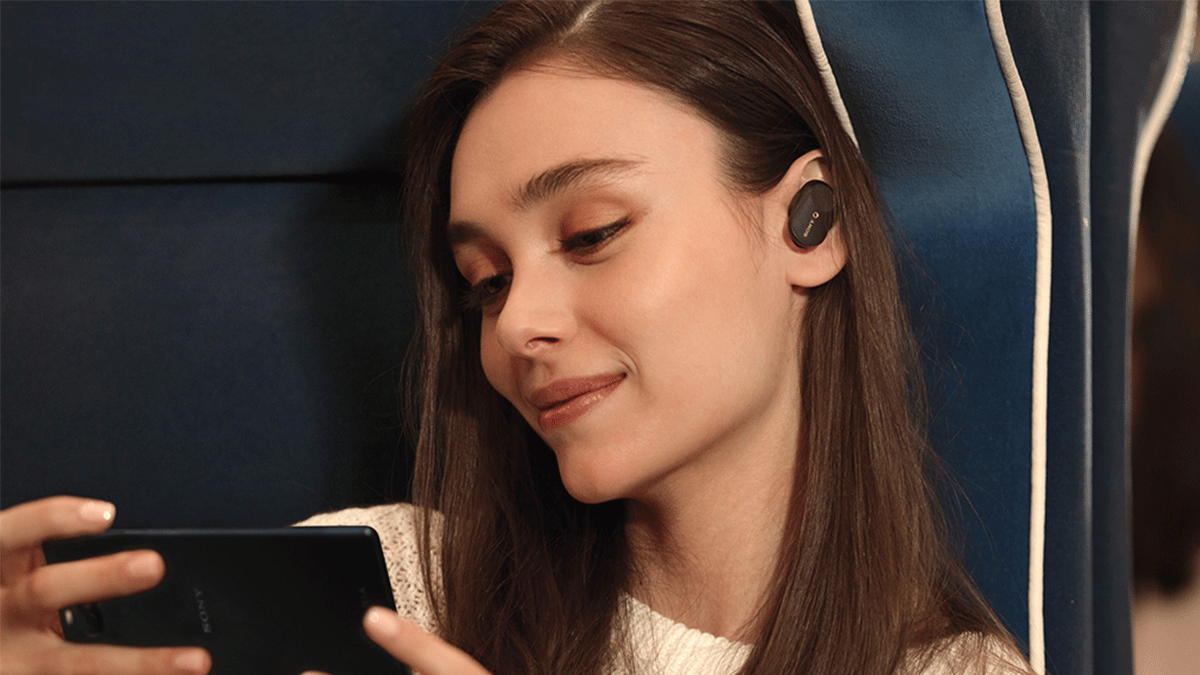PC Glasses: Protecting Vision In Front Of Screens
Buying prescription glasses is a simple task. You go to an ophthalmologist and he prescribes some if you need them, but what about the PC glasses? We spend so much time looking at a screen that many try to make us believe that we need special glasses to protect our eyes. What is true about that?
Why you might need PC glasses
The vision problems associated with spending a lot of time in front of a screen are perfectly real. According to the United States Vision Council, 59% of adults suffer from some discomfort related to looking at a screen for many hours. Among those discomforts, we find dry or red eyes, blurred vision, headaches, or even joint pain.
These problems are usually solved by following some healthier guidelines such as adapting your workspace to make it more ergonomic or limiting the time you spend looking at the screen by making more frequent breaks. It is said that PC glasses can also relieve these disorders, but is it true? To what extent is it a good idea to get some? This is all you need to know.

How PC glasses work
PC glasses or computer glasses are a type of lens specially designed to reduce the brightness emanating from a computer screen (one of the major sources of vision problems) while improving contrast and maximizing what we see with the minimum interference. This function is done in two ways: anti-glare coverage and colour dyes.
Anti-glare coverage
PC glasses brands such as Gunnar or Ambr Eyewear sell glasses whose crystals integrate an anti-glare layer. Many vision correction glasses also add this layer. The point is that not all anti-glare covers are equal. Some, especially the oldest or cheapest ones, are a magnet for dust and dirt, and both factors translate into vision problems.
Normally, poor anti-glare coverage means that you will be cleaning the glass every half hour. Newer lens models with this coverage (many of them certified by the Vision Council itself) no longer have that problem.
Dr Jeffrey Anshel is an optometrist and vision and electronic devices consultant who has worked for companies such as Gunnar Optiks. Anshel explains that the new anti-glare covers are much more effective than the old ones. They peel and scratch less, are easier to clean, and reduce glare and halos better. This means that if you tried some PC glasses years ago and you were disappointed, do not discard the current ones. They may surprise you.
The question of blue light and colour dyes
The second way in which PC glasses work is dye. Some PC glasses have an appreciable hue to the naked eye (usually yellow) designed to improve the contrast and filter the wavelengths that produce greater muscular tension in our eyes, which leads us to the next point …
In recent years we have heard that the blue light emitted by the screens of our phones or computer monitors damage our eyes. It is not true. Today there is no scientific evidence that wavelengths close to blue cause any damage. The American Ophthalmology Association does not recommend any additional protection to protect us from them.
Are PC glasses really effective?
How they say: if it is not broken, do not fix it. If you have never experienced vision problems by being stuck all day on a computer screen you can stop reading here. PC glasses are not going to prevent their appearance or help you with anything other than looking geekier. In fact, using them for no reason could even cause you problems. Dr Robert Noecker, an ophthalmologist and director of the department of Glaucoma at the Connecticut Ophthalmological Consultant Center says:
PC glasses do not prevent eye fatigue to a person who already has their work environment optimized to avoid that fatigue. In addition, the range of eye movement is always better without glasses that obstruct vision. Eyeglass frames limit eye movement and can harm people who wear them without having a real need to do so. Stains and scratches can also interfere with healthy vision.
That said, the thing changes if you really suffer from a vision problem related to using computers. Many people suffer mild discomfort and simply ignore them as part of everyday fatigue. They shouldn’t do it, and in this case, the PC glasses can help. Dr Justin Bazan, a member of the Institute for a Better Vision that is part of the Vision Council of the United States explains:
People are so used to suffering from visual fatigue that they simply ignore it and accept it as normal, but that does not mean it is the right attitude. The first thing is always to see a doctor, and this may be in accordance with the use of special PC glasses. Glasses with anti-glare coverage can help maintain sharper vision. Some even have a slight curvature that can help us distinguish text and reduce eye effort in this task. The contrast enhancement they provide also helps the eye focus better.
In my personal case, wearing glasses with anti-glare coverage is normal because in fact I already wear prescription glasses and my eyes already want to get out of my sockets when they have been looking at a screen for many hours. In addition, the new anti-glare coverage makes the lenses much easier to clean and keep clean. There really is a brutal difference between my old prescription glasses and the new ones with anti-glare coverage, which are the closest I have experienced to what it should be to look good without the need for glasses.

As for the PC glasses that can be purchased without a prescription, those who have tried them write very positive opinions about it. Users’ opinions cannot be taken as scientific evidence of anything, but when everyone seems to agree that they serve, they do something.
The price issue
There is an important difference that depends on whether you need prescription glasses or not. On the Internet, you can find PC glasses without graduating from brands like Gunnar for prices as low as 40 euros. However, if you need those same prescription glasses, the price goes up to several hundred dollars or euros depending on what your vision problem is. There are many brands that integrate this coverage in their lenses (Crizal, Zeiss, Teflon …) but adding it to your new glasses will see the bill rise between 70 and 140 euros. It is a fact to take into account, but it is also true that good glasses to see are an investment that is usually made for several years.
Why some say PC glasses are a scam
Part of the fault lies with the manufacturers themselves. When PC glasses arrived on the market, their creators often greatly exaggerated their virtues or did so with a style that raised more than one eyebrow. Over the years, that tone has become somewhat more serious, but the fact that the issue of blue light continues without scientific support does not help. However, optometrists such as Dr Krista Anderson insist that the functions added by PC lenses (anti-glare coverage and colour dyes) are something that she already recommends to many of her patients.
About 10 years ago, Gunnar went on to say that his glasses helped maintain eye moisture. Over time it has stopped doing so because science has shown that it is not true. Clinical studies such as this one from the University of the Pacific in Oregon have measured this factor in groups of patients under the brightness of a screen in a dry environment. The result is that they have not found any difference between wearing glasses and not wearing them. If you spend your life rubbing your eyes because the PC glasses are dry they will not help you at all. Dr Noecker has some other much more effective recommendations:
Electronic equipment tends to heat the air and dry it. Using an atmospheric humidifier can help maintain ambient humidity. It is also effective to take breaks to allow the eyes to relax, use artificial tears and, above all, blink. When we look at a screen, the flicker rate is reduced between two and three times.
In short, do I buy some PC glasses or not?
Before jumping to buy a pair of glasses for the PC, be sure to adjust your work environment to make it the most suitable. These are some of the measures you can take:
Follow the 20-20-20 rule. Set an alarm every 20 minutes and when it sounds to look at distant objects (20 feet or 6 meters away) for 20 seconds. There are applications like Pomy that remind you.
Make sure your work environment is ergonomically healthy. You have a very useful guide for this here.
Use quality lighting (the best is that of the Sun. Raise the blinds) and avoid lamp types that cause fatigue, such as neon.
Reduce monitor brightness and use larger fonts if you need it.
Remember to always be a good distance from the screen and keep your workspace moist with a humidifier if you suffer from a dry eye.
If, despite all this, you still experience discomfort, first go to your ophthalmologist. If you finally want to try a PC glasses, remember to compare prices. Companies like Gunnar have configurators that allow you to adjust the glasses to your needs. When you have the model you want, take that information to your optician and consult with your optometrist. You can probably get the same, at a better price.

